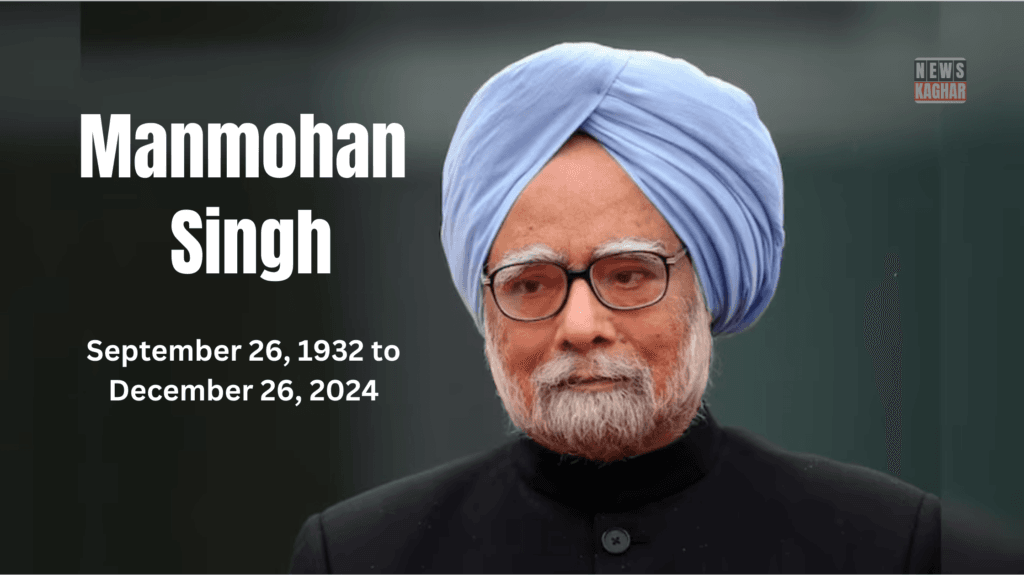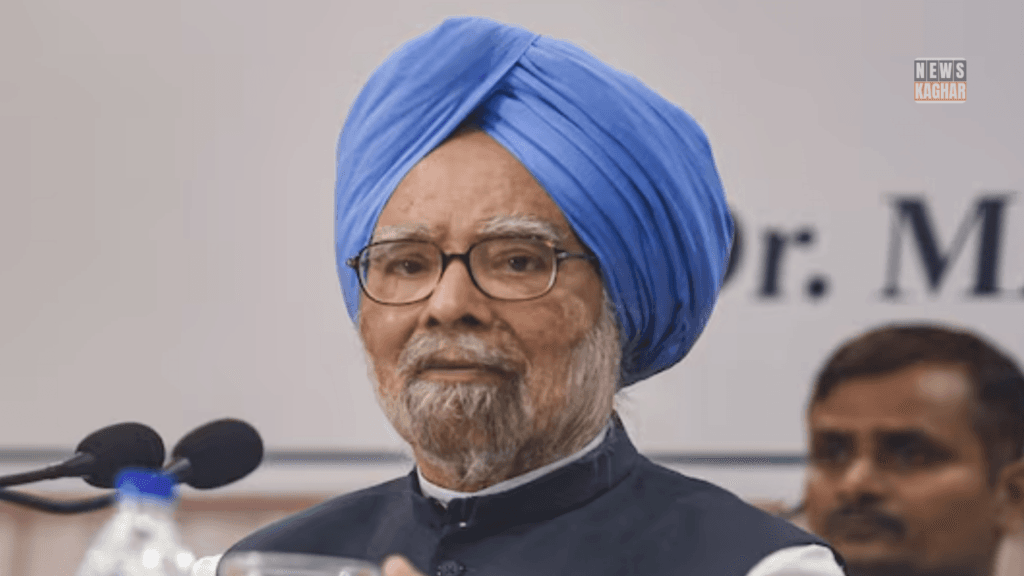
It’s often said that to truly understand what lies ahead, one must learn from what has already been. The past not only teaches but also guides, helping us discover our place in the bigger picture.
Dr. Manmohan Singh’s life was a reflection of dedication and humility. Starting as an economics lecturer, then becoming the Governor of the Reserve Bank, later taking charge as the Finance Minister, and finally leading the country as Prime minister — his journey spanned decades of service and sincerity.
Nearly ten years ago, he shared a simple yet powerful thought in a press conference — ”Life is like an open book.” Today, as the nation grieves his loss at the age of 92, that phrase echoes louder than ever. Whenever questions were raised — about policy decisions, leadership strength, or political controversies — Dr. Singh chose not to engage in loud debates. Instead, he believed time would reveal the truth, often saying that it is history’s job to pass the final judgment.
Manmohan Singh Passes Away
The world often failed to truly measure the depth of his personality. Though his contributions touched the sky, he always chose to walk with humility. Such was the grace of Dr. Manmohan Singh, India’s 14th Prime Minister, who served the nation for two full terms. Today, the nation mourns his passing.
At the age of 92, Dr. Singh’s health took a critical turn on December 26. He was immediately taken to the emergency wing of AIIMS Delhi, where despite all medical efforts, doctors confirmed his demise. A man of few words but impactful actions, he was never one to seek the spotlight. His work always spoke louder than any speech.
Dr. Shing played a pivotal role in rescuing India’s economy during its most fragile period. Yet, when appreciation came his way, he humbly stepped back, never claiming personal credit. He reached positions of power not through loud politics but through knowledge and trust. It’s even said that Rajiv Gandhi, the former Prime Minister, once underestimated him — referring to him as a ”joker” — but history tells a very different story of the quiet economist who changed India’s financial path forever.
5 Biggest work of Manmohan Singh
Dr. Manmohan Singh, who led the country as Prime Minister for two full terms, is remembered for many impactful decisions — but one of his most significant contributions came even before he held the top office. in 1991, when India’s economy was on the verge of collapse and the world was reeling from the effects of the Gulf War and rising oil prices, he stepped forward during a moment of crisis.
- 1. Economic Overhaul During a Time of Crisis
At that critical point, India was facing a severe financial crunch — the government barely had enough reserves to keep the economy afloat for even a few weeks. It was then that Prime Minister P.V. Narasimha Rao chose Dr. Singh to take charge as the finance Minister. Initially, Singh himself thought the news of his appointment was a misunderstanding — even joking about it. But by the next morning, the reality set in, and the responsibility ahead became clear.
The task was enormous. With the International Monetary Fund (IMF) monitoring the situation closely, a wave of anxiety swept across the county. There were whispers that the reforms might open the doors to foreign control. Critics accused the leadership of putting national interests at risk. The environment was tense and uncertain.
In such circumstances, Prime Minister Rao made his stance clear — if the reforms worked, the government would celebrate the success, but if they failed, Dr. Sigh alone would be held accountable. Despite the pressure, he moved ahead with bold policy changes. Ultimately, taking that risk led to a successful outcome. Indian took its first major steps toward liberalization, setting the economy on a new and sustainable path.
- 2. Right to Information: A Step Toward Transparency
The second major achievement under Dr. Manmohan Singh’s leadership was the implementation of the Right to Information (RTI) Act. Enacted in 2005, this law became one of the strongest tools in the hands of Indian citizens, allowing them to directly question public officials and government departments. Alongside the Consumer Protection Act, the RTI law gave people authority than ever before to demand accountability.

For years, citizens had been demanding a law that could help them uncover the truth behind government actions. Before this, officials often marked crucial files as ”confidential,” keeping the public in the dark and making it easier for corruption to flourish. The RTI Act changer that — it opened up access to information and made it legally possible for ordinary people to ask tough questions.
However, the same law that empowered people also brought challenges for Dr. Singh’s government. As citizens began to dig deeper into the functioning of various departments, allegations of scams and misuse of power surfaced — some even pointing fingers at the administration itself. Still, despite the criticism, the RTI Act marked a turning point in India’s democratic process, making governance more open and answerable.
- 3. MNREGA: A Lifeline for Rural Families
In 2006, the government led by Dr. Manmohan Singh introduced a scheme that redefined the connection between the state and its people — the Mahatma Gandhi National Rural Employment Guarantee Act (MNREGA). This law aimed to ensure that people in villages could find work near their homes, reducing the need to migrate in search of income.
The idea was simple yet powerful — every rural household would be offered a guaranteed number of days of paid work each year. If the authorities failed to provide work within the set timeframe, the affected families were entitled to receive compensation. This initiative brought relief to many low-income families, offering not just wages but sense of stability.
Later, when Prime Minister Narendra Modi came into power, he publicly criticized the scheme, even suggesting it reflected the weaknesses of the previous government. However, despite the criticism, the program was never scrapped. Its continuation showed how deeply it had become a part of the rural economy and how essential it was for those who depended on it.
- 4. Civil Nuclear Deal
In 2008, under Dr. Manmohan Singh’s leadership, India moved forward with a landmark civil nuclear agreement that aimed to tackle the country’s rising energy demands. As development spread, the need to power remote areas became urgent, and nuclear energy was seen as a practical long-term solution.
However, the path wasn’t smooth. There was growing concern among certain political groups and citizens that the government was becoming too close to the United States. Doubts suspicions surfaced, leading to public debate and political tension.
One of the ruling alliance’s key partners — the Communist Party — strongly opposed the deal and even threatened to pull out of the coalition if it went ahead. Despite the risk of losing parliamentary support, Dr. Singh chose to stand firm. Without giving in to pressure, he ensured the agreement was completed, showing rare courage and placing the nation’s future energy security above political survival.
- 5. Food Security Bill: A Commitment to No Empty Plates
The fifth significant achievement of Dr. Manmohan Singh’s government was the introduction of the Food Security Bill in 2013 — a step that aimed to make hunger a thing of the past in India. The need for such a policy wasn’t sudden; the country had witnessed devastating famines in the past — from the Bengal famine before independence, to food shortages after wars with China and Pakistan.
Though the Green Revolution brought some relief and improved agricultural output, the reality remained that millions of Indians still struggled to afford even one full meal a day. Even after the pandemic, the issue of hunger lingered in many corners of the nation.
It was in this backdrop that the UPA government took a strong initiative to ensure that every citizen had the legal right to access food. While critics questioned the bill — raising concerns about grain wastage, leakages in distribution, and financial burden — the core intent was clear: no one in India should go to bed hungry.
Despite the challenges, the law helped millions. It was more than just a scheme — it was a reflection of the government’s responsibility toward its people. Dr. Manmohan Singh played a quiet but key role in making this vision a reality, setting an example for governance rooted in compassion.
Memorial in Honour of Dr. Manmohan Singh
The central government has announced its intention to build a memorial in New Delhi to honor former Prime Minister Dr. Manmohan Singh. The announcement sparked debate, with some leaders from the opposition accusing the government of playing politics over the matter.
On Friday, officials stated that plans for the memorial are being considered, but as of now, no official documents or clear confirmation have been made public regarding the proposal. The conversation around the memorial continues, while many citizens see it as a step toward recognizing Dr. Singh’s long-standing service to the nation.
Conclusion
Dr. Manmohan Singh’s journey was built on honesty, quiet determination, and a deep sense of duty. Without seeking attention, he brought real change — guiding the country through economic challenges, policy reforms, and global partnerships. His work spoke more than his words ever did.
If you found this story meaningful, explore more such thoughtful articles only on newskaghar24.com, where we bring you stories that truly matter.
